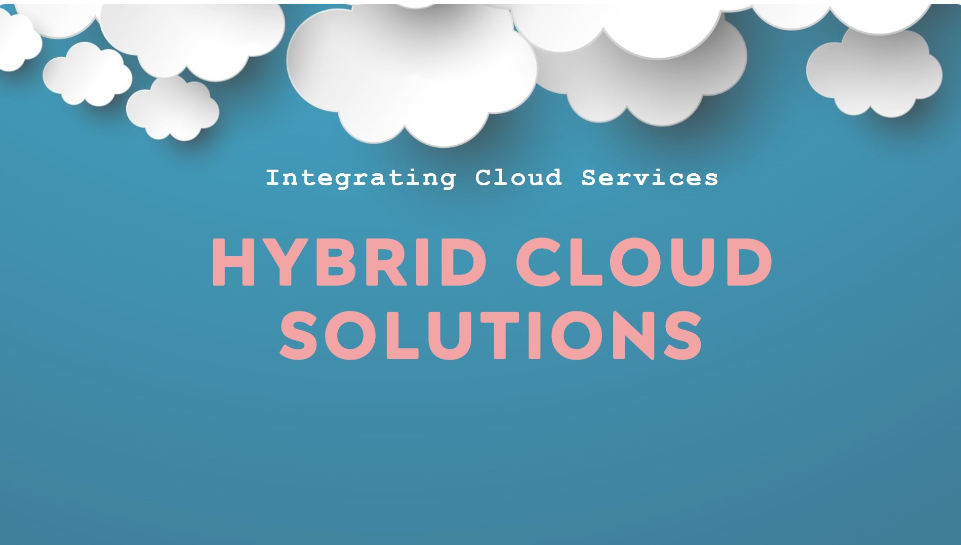
In the rapidly evolving digital landscape, organizations are increasingly adopting cloud computing to enhance flexibility, scalability, and efficiency. However, integrating cloud services with existing on-premises systems and applications can be challenging. Effective Cloud Integration ensures that businesses can leverage the advantages of both public and private clouds while maintaining seamless operations across different environments. This article explores the concepts of Hybrid Cloud Solutions and API Management, detailing how they contribute to successful cloud integration and how Business Transformation Consulting as a Service (BTCaaS) can assist organizations in achieving their integration goals.
1. Understanding Cloud Integration
Cloud Integration refers to the process of configuring multiple cloud services and on-premises systems to work together as a cohesive unit. This integration allows businesses to streamline their operations, improve data flow, and enhance the overall user experience.
Importance of Cloud Integration:
- Enhanced Efficiency: By integrating various cloud services and applications, organizations can eliminate data silos and optimize workflows.
- Data Accessibility: Integration ensures that data is accessible across different systems, improving collaboration and decision-making.
- Flexibility and Scalability: Organizations can quickly scale their operations by integrating cloud services, allowing them to respond to changing business needs.
- Cost Optimization: Cloud integration can lead to better resource utilization and reduced operational costs.
2. Hybrid Cloud Solutions
A Hybrid Cloud Solution combines the benefits of both public and private clouds, allowing organizations to maintain critical data on secure private infrastructure while utilizing public cloud resources for scalability and cost-effectiveness.
Key Features of Hybrid Cloud Solutions:
- Flexibility: Organizations can choose where to host specific workloads based on security, compliance, and performance requirements.
- Scalability: Hybrid cloud solutions provide on-demand access to additional resources in the public cloud, ensuring that organizations can handle fluctuating workloads.
- Enhanced Security: Sensitive data can be stored in a private cloud environment, while less critical applications can be run in the public cloud, reducing the risk of exposure.
- Cost Efficiency: Organizations can optimize costs by balancing workloads between public and private cloud environments.
Common Use Cases for Hybrid Cloud Solutions:
- Data Backup and Disaster Recovery: Hybrid cloud architectures allow organizations to back up data to the public cloud while keeping critical data secure in a private cloud.
- Development and Testing: Organizations can utilize public cloud resources for development and testing environments while keeping production systems on a private cloud.
- Seasonal Workloads: Businesses with fluctuating workloads can leverage the public cloud for peak times while maintaining a stable private cloud environment for regular operations.
3. API Management
API Management is the process of creating, publishing, and managing application programming interfaces (APIs) in a secure and scalable manner. APIs are essential for enabling different systems and applications to communicate and share data, making them a critical component of cloud integration.
Key Features of API Management:
- API Gateway: A central access point for all APIs, which facilitates traffic management, security, and monitoring.
- Security and Authentication: API management solutions provide robust security measures, including authentication, authorization, and encryption to protect sensitive data.
- Analytics and Monitoring: Organizations can gain insights into API usage, performance metrics, and user engagement through comprehensive analytics tools.
- Version Control: Effective API management includes versioning capabilities, allowing organizations to manage changes to APIs without disrupting existing services.
Benefits of API Management in Cloud Integration:
- Seamless Integration: APIs facilitate seamless communication between cloud services, applications, and on-premises systems, enhancing overall integration efforts.
- Improved Agility: Organizations can quickly develop and deploy new services by leveraging existing APIs, accelerating time-to-market for new features.
- Enhanced User Experience: By enabling different applications to share data, API management enhances the overall user experience through personalized services and improved functionality.
4. How BTCaaS Can Help with Cloud Integration
At Business Transformation Consulting as a Service (BTCaaS), we understand that successful cloud integration requires a strategic approach, expert guidance, and ongoing support. Here’s how BTCaaS can assist organizations in implementing hybrid cloud solutions and effective API management:
4.1 Customized Hybrid Cloud Solutions
BTCaaS works closely with organizations to design and implement hybrid cloud solutions tailored to their specific needs. Our services include:
- Assessment of Current Infrastructure: We evaluate your existing IT landscape to identify gaps and opportunities for hybrid cloud implementation.
- Hybrid Cloud Strategy Development: BTCaaS develops a comprehensive strategy that outlines how to leverage public and private cloud resources effectively.
- Migration Planning and Execution: Our team assists in migrating applications and data to the hybrid cloud, ensuring minimal disruption to business operations.
4.2 API Management Solutions
BTCaaS provides end-to-end API management services to enhance cloud integration efforts:
- API Development and Design: We help organizations design and develop APIs that meet business requirements and enhance interoperability between systems.
- API Gateway Implementation: BTCaaS implements an API gateway that serves as a secure access point for all APIs, facilitating traffic management and monitoring.
- Security and Compliance: We ensure that API security measures are in place, protecting sensitive data and complying with industry regulations.
4.3 Continuous Support and Optimization
BTCaaS offers ongoing support and optimization services to ensure that your cloud integration remains effective:
- Monitoring and Analytics: We provide monitoring tools to track API performance and cloud resource utilization, allowing for timely adjustments.
- Training and Enablement: BTCaaS offers training programs to empower your teams to manage hybrid cloud solutions and APIs effectively.
- Regular Reviews and Updates: Our team conducts periodic reviews of your integration strategy to ensure alignment with evolving business needs and industry best practices.
Conclusion
Cloud integration through Hybrid Cloud Solutions and effective API Management is essential for organizations looking to optimize their operations, enhance data accessibility, and leverage the full potential of cloud computing. With BTCaaS as your trusted partner, you can navigate the complexities of cloud integration, ensuring a seamless transition and long-term success in your cloud journey.
